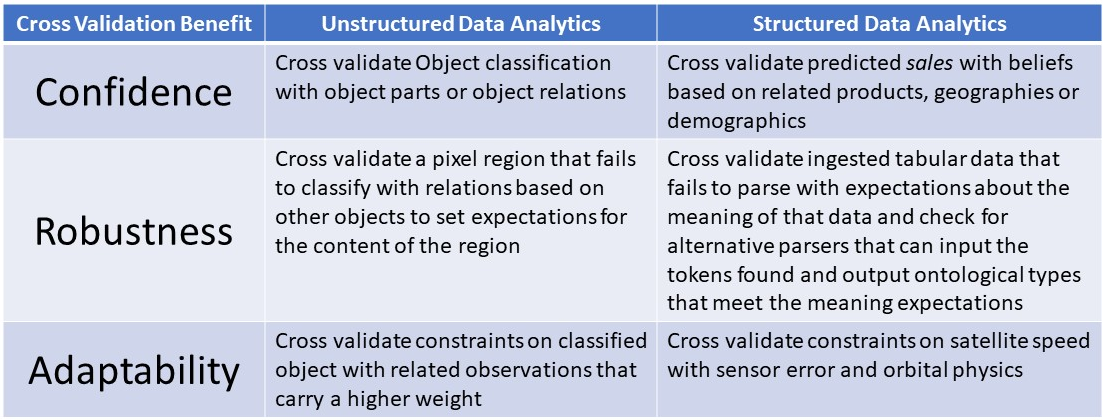Adding Real Meaning to Data Catalogs: for Humans and Machines
The promise of Data Catalogs
Data catalogs provide access to organizationally relevant data. They can
help knowledge
workers locate data, and they can help Chief Data Officers ensure regulatory
compliance and
implement appropriate cyber policies.
The Problem with Data Catalogs
Data catalogs are still expressed in terms of the data’s original labels. If
the data’s label is unknown, both persons and computers need to search by
catalog metadata such as by business group that queries the data or time of
last refresh. Which is useful. But not as useful as being able to query by
meaning.
Users (persons and computers) should be able to ask for information about
something without knowing specific labels. Instead of having to know that
information about large customers in danger of turning over is found in fields
with the labels ‘customer analytics’, ‘pipeline forecasts’, and ‘sales meeting
minutes’ users should just query for information about large customers in
danger of turning over
Add real meaning to your data catalog
Using the Ontological computing language of our
C.O.R.E. technology, Blender
Logic can map the contents of data catalogs into real meaning that humans and
computers can understand. Enabling knowledge workers, Chief Data Officers and
analytical routines to query and analyze the big data content made accessible
through data catalogs without having to remember, lookup or discover all the
labels.
Discover what you really know
Armed with an understanding of the real
meaning of the data referenced in the catalog, Blender Logic can use its
C.O.R.E. Technology to help you discover are
as of data redundancy, data contradiction, cross organizational interest, and
risky organizational ignorance.
Blender Logic’s consultants can help you add real meaning to your catalogs
Quantifying the value of the data in your catalog
The need to understand data value
Data is an organizational intangible. Depending on its real meaning it may be
an asset and/or a liability. The value of your data small or large, positive or
negative is the value and impact of the decisions made internally and/or
externally with the data1. The higher the
decision value, the more you can cost-justify data quality improvements or
charge an entity for the right to use the data. For most organizations, a
small percentage of their data accounts for a high percentage of organizational
decision value
Your data value solution
Using our C.O.R.E. technology in combination
with Catalog metadata, you can track, estimate and refine value estimates for
all the information currently or potentially in your organization. And build
automated data catalog functions driven by information value.
Blender Logic’s consultants can help you benefit from adding values-based
processing to your data catalogs
Information Value: A Recursive and Quantitative Approach
Thomsen
In Decision Modeling and Information Systems: The Information Value Chain
N.S. Koutsoukis, G. Mitra
Copyright Kluwer Academic Publishers 2003
